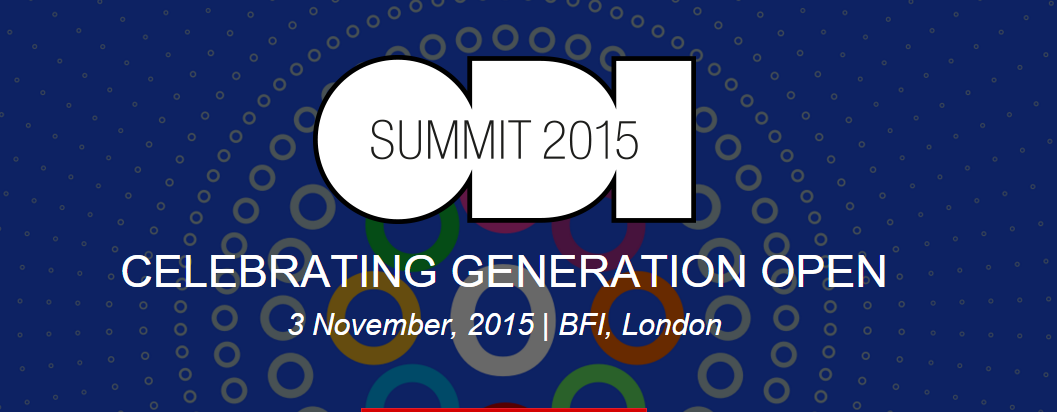On November 13th, 2015, a community workshop on the Open Science Cloud titled "Shaping the Open Science Cloud of the Future" took place in Bari, Italy. Agro-Know was invited as a data-powered SME in order to contribute its expertise in serving the agri-food research community - other communities were represented as well.
This provided us with excellent opportunity to present how three different user types could benefit from the envisaged Ope Science Cloud:
- Agri-food researchers: I have have spent 13 years in the Agricultural University of Athens; two of them for my MSc. and almost 5 for my PhD. I didn't have any kind of infrastructure suporting me as a researcher back then: I recall copying my data from the lab desktop computer - no laptops back then - using an external parallel Zip drive using 100MB disks (a painfully slow process) or an almost faulty SCSI CD recorder which frequently provided us with lemon copies of the data. When I wanted to share data with our Austrian colleagues I had to create copies of the CDs, check their integrity and then send them to Austria using regular postal service...this makes me (and researchers like me who may have access to the necessary tools and platforms but they do not know how to make use of them) a potential user of the Open Science Cloud, as
an individual researcher. - A data-powered SME: Agro-Know is working closely with agri-food researchers; we understand their needs and serve them by developing data-powered services. Our AKstem product is a fine example, as it provides a cloud-based web app that supports e.g. content providers who wish to publish their research publications through the FAO AGRIS bibliographic database; both the help desk and the metadata ingestion processes are supported by AKstem. In addition, researchers who wish to apply for funding through any of the Horizon 2020 agri-food calls can get support in terms of describing, developing and implementing the mandatory Open Access and Data Management Plan through AKstem. Such services require cloud-based hosting, storage and data services thus making Agro-Know an SME that is a potential customer/user of the Open Science Cloud offerings.
- A global research data hub: AK is only one of the entities behind agINFRA, which currently involves major players in agri-food research at a global level, including (but not limited to) UN FAO (Global), CGIAR (Global), CABI (UK), GODAN (Global), USDA NAL & AGRICOLA (US), OADA (US), CAAS (China) and EMBRAPA (Brasil). INFRA has evolved from an FP7 project to a global atlas of agri-food research. It embraces all types of information related to agri-food research, such as research data and publications, profiles of researchers, organizations and projects activated in specific research contexts, domain-specific standards, software tools, platforms, thematic repositories, registries and indexes and anything else. However, agINFRA does not aim to be yet another registry or catalog of services and entities: instead, it creates a semantic layer providing rich information about each one of these entities and uses vocabularies for classifying them. In this way, these resources are not only more easily retrieved by queries but related heterogeneous resources are linked and therefore presented together after related queries. agINFRA embraces all types of data providers, no matter how big or small they are - the latter usually have limited technical technical and financial capacity for publishing and sharing their data and this is where agINFRA and its dedicated help desk shines.

A large and ever growing network of agri-food data managers, the FAO AIMS community, supports researchers by openly sharing their knowledge through the AIMS platform in blog posts, webinars, discussion as well as in meetings, such as the ones of the Agricultural Data Interoperability Group of the Research Data Alliance. As a result, agINFRA can test, validate and deploy data usage scenarios that include heterogeneous data types from various data sources all over the world. You should keep in mind that agriculture is a complex science, covering thematic areas that range from traditional crop/animal/food science to food safety, food security, forestry, viticulture and wheat research etc. - all these thematic areas produce and make use of a wealth of heterogeneous data such as physical measurements, sensor data, environmental parameters, weather and soil data, soil maps, images, outcomes of DNA/RNA/protein analysis, antibodies, agricultural trials. These highlight the increased need for cloud and grid-based services for these communities to be served and this highlights the role of agINFRA as a potential customer/user of the Open Science Cloud offerings.
After presenting the big picture, I went back to describing the work of a researcher, who apart from conducting his research, he needs to spend time looking for information on the following:
- Guidance on publishing his research as Open Access; what are the institutional and project policies, what are the available domain-specific repositories to deposit his publications and aggregators etc.;
- Help on where and how to store his data online using a free cloud service for sharing, managing and preserving his data;
- Identify other researchers working on the same research area, related organiations and initiatives/projects etc.
- Funding opportunities to support his research;
- Other...
So our vision as Agro-Know and agINFRA in terms of implementing the Open Science Framework in our case is for us to be able to support agri-food researchers in the aforementioned activities using cloud-based, customized and open services, thus saving them time that can be allocated in what they know how to do well: their research.





